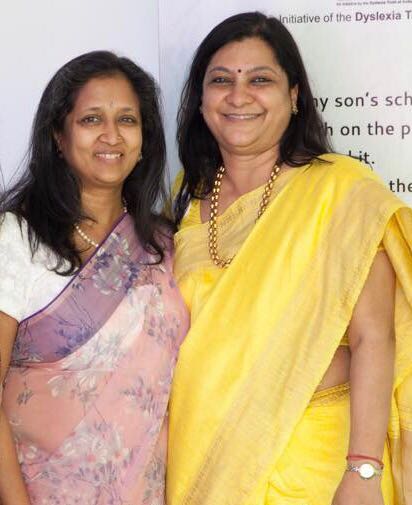Breaking Through Dyslexia (BtD)
Breaking Through Dyslexia (BtD)

Ms. Divya Jalan, founder of Breaking Through Dyslexia, describes what Dyslexia is, and speaks of what her organisation does.
Dyslexia: A perspective
Dyslexia is a language disability which means difficulty with words. The world federation of neurology defines dyslexia as a disorder manifested by difficulties in learning to read despite conventional instruction, adequate intelligence and socio-cultural opportunities. It is distinct from retardation and other emotional problems. Dyslexia does not discriminate on the basis of intellect. Extremely intelligent people can be dyslexic.
It is estimated that, in India, about 10% of the school going children have Dyslexia.
At the preschool level, children ‘at risk’ of Learning Disabilities (LD) show a delay in speaking and acquiring language capabilities, developmental milestones like walking and crawling, difficulty in learning the alphabet and inability to learn simple nursery rhymes.
In early school years, these children show signs like inability to recognise letter-sound association. They make reading errors which show no connect to the word and show reversals in writing letters and numbers.
As they move into secondary school and upwards, they show slower progress in reading skills and comprehension. They fear oral reading. They have problems copying off the board which result in illegible handwriting, poor spelling capabilities and omission of words. They may complain of the letters swimming or experience headaches.
Researchers looking into the role of genetics in dyslexia say it can run in families. If your child has dyslexia, there is a chance that you or another relative may have it too, although this may not have been formally identified. About 40 percent of siblings of a person with dyslexia may have similar reading challenges. Scientists have also located several genes associated with reading and language processing difficulties.
Everyone’s brain is different. This is also true of people who have dyslexia. Many experts believe that the problems people with dyslexia experience are not a result of how their brains are structured. Instead, it is more about how their brains function. When we read, the brain translates the symbols we see on the page into sounds. Then it combines those sounds into meaningful words. Typically, the areas of our brains responsible for language skills work in a predictable way. If a child has dyslexia, those areas do not work together in the same way. Children with reading difficulties use different areas of the brain to compensate.
Anyone dealing with any child who has a learning disability should be sensitive. These children are found in mainstream schools, but because of the large class strength, they tend to be overlooked. Erosion of self-esteem accrues over time, leading to a sense of inferiority and helplessness, making them highly vulnerable and more likely to be influenced by others.
We need to reach out to these children before it is too late and help them acquire mastery over skills through a well thought out remedial education plan. We need to be with them through the initial rough patches, as the temptation to give up will loom large. Use the child's areas of strength, interest and aptitude to teach. The child should be taught how to look for errors and self-correct his/her work. Praise and a smile of approval, for every small step achieved, can go a long way.
Parents and teachers should recognise the child's limitations and set realistic goals which are challenging but not overwhelming. They should break tasks into smaller sub goals, help them identify their strengths, and use these to tide over weak spots. Developing interests and hobbies outside the academic area can help the child go through positive experiences. Always be alert for situations which are set up for failure.
Dyslexia is different for everyone. Some people have a mild form that they eventually learn how to manage. Others have a little more trouble overcoming it. Even if children aren't able to fully overcome dyslexia, they can go to college and succeed in life.
Breaking through Dyslexia (BtD)is a niche non-profit educational organisation that provides a scientific understanding of students with a ‘specific learning or language disability’. Situated in the heart of Kolkata, BtD addresses the full scope of dyslexia and related difficulties with the objective to facilitate remedial assistance that provides hope for the child and parent to lead a productive life. We reach out through group discussions, conferences, talk shows, personal visits and counselling sessions at school. We organise workshops for parents and educators by eminent educationalists not only in India, but from around the world. We conduct workshops at schools to help the teachers identify and help children that are at risk or may have a learning disability.
 BtD also provides psychometric evaluation. The assessment of the child’s problems can only be done with the help of testing. Such a report forms the base for therapy. Remedial programmes, customised for individual needs, are designed. We know that a dyslexic condition cannot be changed, but we can provide remedial learning and help the child address this condition to achieve his/her potential.
BtD also provides psychometric evaluation. The assessment of the child’s problems can only be done with the help of testing. Such a report forms the base for therapy. Remedial programmes, customised for individual needs, are designed. We know that a dyslexic condition cannot be changed, but we can provide remedial learning and help the child address this condition to achieve his/her potential.BtD has been conducting regular workshops at the centre, schools in Kolkata and other cities in Eastern India touching various topics on how to deal with dyslexia. We held an international conference “D.A.R.E to Win” in 2013. The second edition of this conference was held in December 2015 where the Honourable Chief Minister of West Bengal, Ms. Mamta Banerjee inaugurated the conference and lent her support to the cause.
We at Breaking through Dyslexia strongly believe in the famous saying by Bernadette Devlin.
“Yesterday I dared to struggle. Today I dare to win.”





















